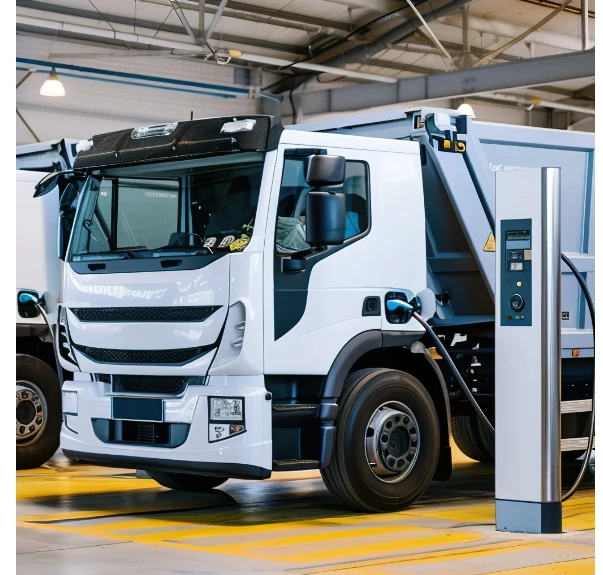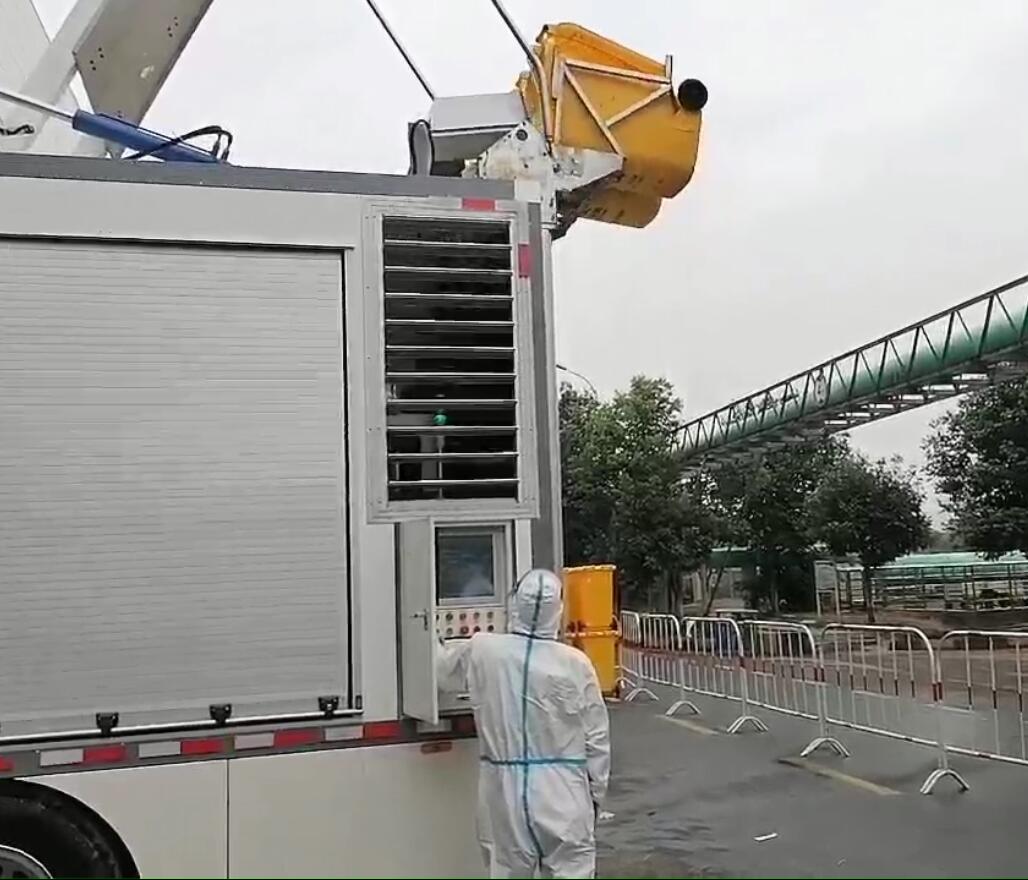A Vital Component in Healthcare Waste Management
A medical waste holding cabinet is a specialized storage solution designed to temporarily contain hazardous materials generated in healthcare settings, including used medical devices, contaminated dressings, expired medications, and other waste items that pose infectious, toxic, or other dangers. These cabinets ensure that medical waste is securely stored before it is transferred to disposal facilities, minimizing health risks and environmental impact.
Types and Functions of Medical Waste Storage Cabinets
Medical waste storage cabinets play a crucial role in centralizing waste management within healthcare institutions such as hospitals, clinics, and centralized waste collection points. Proper management of medical waste is vital to preventing environmental contamination and protecting the health of personnel.

Cabinets are typically categorized by the type of waste they store
Items contaminated with blood, bodily fluids, excreta, or domestic waste from patients with infectious diseases are securely stored to prevent cross-contamination.
Discarded human tissues and organs, especially from surgeries, require special storage conditions like low temperatures to prevent bacterial and viral growth.
Sharps such as needles and scalpels are stored in puncture-resistant containers to prevent injury to healthcare workers and avoid the spread of infections.
Expired, obsolete, or contaminated medications are stored in designated cabinets to prevent leakage and environmental contamination.
Toxic or corrosive chemicals, including discarded reagents and mercury thermometers, require specialized storage with protective measures to avoid hazardous exposure.
Materials and Construction of Waste Holding Cabinets
Medical waste holding cabinets are made from materials that ensure durability and safety
Stainless Steel
Known for its high strength and resistance to corrosion, stainless steel ensures the cabinet can withstand impacts and prevent leakage. It is easy to clean and disinfect, which helps in reducing bacterial and viral contamination.
Learn MoreGalvanized Steel
A more cost-effective option, galvanized steel is treated for rust resistance and is commonly used in smaller healthcare facilities or areas with limited budgets.
Learn MoreThe cabinets are designed with sealing materials that prevent the leakage of harmful odors and gases, ensuring safety for the surrounding environment. The frame construction is stable enough to handle the weight of medical waste and withstand varying environmental conditions.
Key Features of Medical Waste Storage Cabinets

Temperature Control
Some cabinets are equipped with refrigeration or heating systems to maintain the required temperature for certain types of medical waste, such as pathological or temperature-sensitive pharmaceutical waste.

Ventilation
Many cabinets include air circulation systems to prevent the buildup of humidity and reduce odors. Some models are also equipped with air purifiers to filter out bacteria, viruses, and other harmful particles.

Intelligent Monitoring
With built-in sensors, medical waste cabinets can monitor parameters like temperature, humidity, and gas concentration. These readings are transmitted to a central monitoring system, which alerts personnel if an abnormal situation occurs, such as high temperatures or gas leakage.

Access Control
Strict access controls ensure only authorized personnel can open the cabinet, enhancing the security and safety of the stored waste.
Benefits of Medical Waste Storage Cabinets
Environmental Protection
Proper storage reduces the risk of waste leakage, preventing soil, water, and air contamination.
Health Protection
By containing harmful pathogens, the cabinets protect healthcare workers, patients, and cleaning staff from exposure to hazardous materials.
Regulatory Compliance
Medical waste storage cabinets help healthcare facilities comply with national and international regulations, minimizing the risk of penalties and legal issues.
Precautions for Use
Proper operation of medical waste storage cabinets involves several key practices
Waste Disposal
Healthcare workers must segregate waste according to type (e.g., sharps, pharmaceutical, infectious waste) and place it in the appropriate storage containers.
Regular Cleaning
The cabinets should be cleaned regularly to prevent waste buildup, which could cause cabinet doors to malfunction or waste to overflow.
Inspection and Maintenance
Routine checks ensure that seals, locks, and structural integrity are maintained. Any issues should be addressed promptly to ensure continued safety.
Disinfection
After emptying or transferring waste, the interior of the cabinet and surrounding area should be disinfected with appropriate chemical agents to prevent contamination.
End-of-Life Disposal
When a cabinet reaches the end of its service life or becomes irreparably damaged, it should be recycled through certified scrap metal processing services.
Choosing the Right Medical Waste Storage Cabinet
To select the most appropriate cabinet for your needs, consider the following
Material and Quality
Choose cabinets made from corrosion-resistant materials with strong sealing properties. Verify product certifications and testing reports.
Functional Requirements
Consider the volume and type of waste generated by your facility. Some cabinets may need additional features like refrigeration or higher capacity for larger institutions.
Compliance with Standards
Ensure that the selected cabinet meets local and international regulations for medical waste management, including relevant health and environmental standards.

Regulatory Requirements and Industry Standards
According to the World Health Organization (WHO), medical waste should be classified, packaged, and handled safely at all stages, from generation to disposal. Domestic regulations, such as those laid out in the Regulations on the Management of Medical Waste, set clear guidelines for the storage, handling, and disposal of medical waste in healthcare facilities. Additionally, international companies such as Stericycle(USA) and BHT Hygiene Technik (Germany) are leaders in medical waste management solutions.
Conclusion
Medical waste holding cabinets are an essential part of any healthcare facility's waste management system. They not only protect the environment and public health but also ensure compliance with legal and regulatory standards. Choosing the right cabinet involves understanding the specific needs of your facility and selecting products that offer durability, functionality, and safety. Proper use and maintenance of these cabinets contribute to a safer and healthier environment for both healthcare workers and the general public.
FAQ
Biosafe offers a comprehensive range of high-quality products, backed by 16 years of industry expertise. We excel in understanding global regulations, providing tailored solutions, and delivering reliable after-sales support through our network of local engineers.
All our products undergo rigorous quality checks and are CE-certified, ensuring they meet and exceed global regulatory standards. Our in-depth knowledge of international laws allows us to guide clients through compliance, no matter where they operate.
Yes, Biosafe maintains a robust inventory and offers fast delivery, including door-to-door services. We understand the urgency of medical waste management and are equipped to provide prompt support when you need it most.
Our commitment to customer satisfaction doesn’t end with the sale. We provide ongoing support through our local engineers, ensuring that any issues are resolved quickly. We also offer guidance to help clients get the most out of our products and solutions.
Biosafe has extensive experience in assisting clients with medical product tenders. We provide expert guidance in product selection, compliance documentation, and tailored solutions to meet the specific requirements of each tender, helping our clients achieve success in competitive bidding processes.
Send a message
Find us
17th Floor, Caochangmen street, Nanjing City, Jiangsu Province, China
Email: [email protected]
Phone: +86 13276687134 Phone: +44 07516023572
